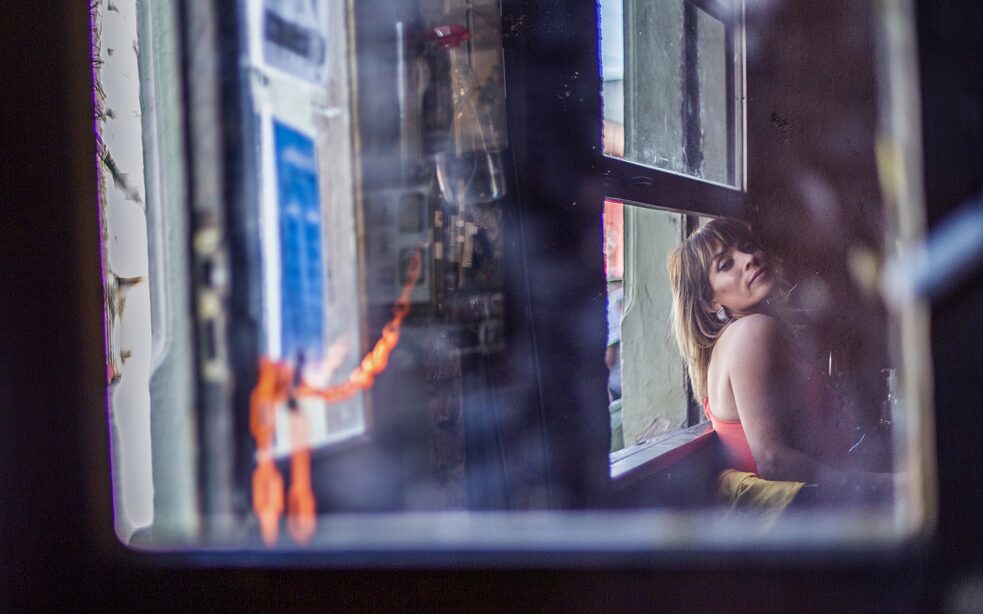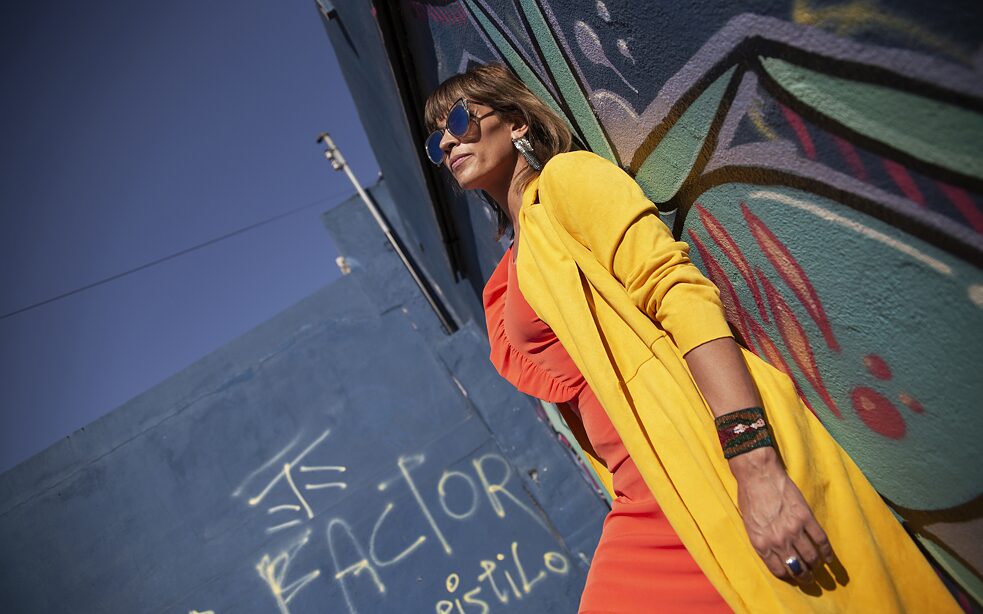Trans Literature from Argentinia
“Identities Matter Little to Me”

The Argentinean writer Camila Sosa Villada defends the term “travesti” in contrast to the category “trans woman,” says she considers “identity a prison” and states categorically that: “People love our suffering.”
By Juliana Vaz
Born in Argentina, a country where the life expectancy for a travesti (transvestite) is under 40, Camila Sosa Villada (1982), defied statistics and dared to survive. And, after surviving, dared to share the news of her survival. A trailblazer of contemporary Latin American literature, Sosa Villada draws on her own experiences as a travesti at the beginning of the 2000s to create literature.
The violent reality of prostitution to which she was subjected when she started dressing as a woman and discovered the “magic of becoming herself” translates into raw, fast-paced language. But those hoping to find only suffering and self-commiseration will quickly feel frustration: there is also much irreverence, humor and tenderness in her narratives.
Prior to her literary debut, Sosa Villada worked in theater. The transition from the world of prostitution to the stage is narrated in a story in her most recent book, Soy una tonta por quererte (I’m a Fool for Loving You), in the first person, but it is not a simple autobiographical narrative. In the story, whose title is also the title of the collection, the author opens an imaginative space through the narration of a sexual encounter between a Mexican travesti and the singer Billie Holiday.
Identities matter little to me. Experiences matter.
Mrs. Sosa Villada, you choose to use the word “travesti” (transvestite) in your narratives. Could you talk about the meaning of the term for you?
The word “travesti” contains an era, bodies, a social class, a kind of experience, even an impression of the world that no other word contains. Let’s say that saying “trans woman” is not as poetic as saying “travesties.” Because “travesti” is a word that immediately resonates in the body of the person reading or hearing it. Saying “trans women” is talking about an identity and identities matter little to me. Experiences matter. Based on skin, class. I could care less about an identity, which, on the other hand has become a prison, where people are quiet, because they made their language coincide with an image that is easily recognizable. Your literature is inspired by personal experience. In “Soy una tonta por quererte,” we read that, “in writing, it is useless to disguise a first person.” Why is it important to you to take on the “I” who is writing?
It is not important for me to take on this roll. If I am giving this impression, maybe I am writing poorly. What is important to me is fiction. The deformed object of fiction, how to make a cruel and frightening character from what remains, how to make dreams. What is important in my writing is the space that I create for myself, in a story. I am an unreliable narrator.
By placing the humanity of travestis, a group that has been stigmatized historically, as central to the narrative, your writing takes on a political dimension. When you sit down to write, are you concerned with the political impact of your literature?
No, not even a little. I repeat, what I am interested in is fiction. Creating fiction is like sitting down to embroider, paint, sculpt, creating something with your hands. With the freedom of freeing it, even knowing that it carries a curse. What happens when it is read is beyond me, I cannot respond for the readers. Think about it, I can’t even respond for myself!
At the beginning of “Las Malas”, there is a touching scene: an abandoned baby in a park is found and adopted by Tía Encarna, an elderly travesti who has a “theatric maternal instinct,” but the fate of both, mother and son, is tragic. Is travesti motherhood still a taboo subject?
I don’t know. In the book it is it is, because it takes place in a city in a specific period. Now, I have many travesti friends who have taken on the role of motherhood, and everything is going very well. But, of course, in Las Malas, the failure of the story between El Brillo de los Ojos [the adopted baby] and Tía Encarna [the character who adopts the baby] has to be the dirty work of society.
Did you encounter resistance in the literary world before you started publishing? What advice would you give to young travesti authors who are starting out?
I did not encounter resistance, because I didn’t want to publish! [Laughter]. I was writing on Facebook almost like it was a public diary, and some publishers started following me. I resisted for a long time until La novia de Sandro (Sandro’s Fiancée) came out, which is a book of poems. Every book I’ve written was at the invitation of a publisher, not the other way around. Of course, I had minimal recognition as an actress and all that, so they could take the risk to publish me. Additionally, on Facebook they could also see how people were reacting to what I was writing.
Of course, I’m a difficult person.
Marguerite Duras, Wislawa Szymborska and Carson McCullers are cited as having influenced you. Do you usually prioritize literature written by women?
Yes! That’s how it is, but it’s subconscious. I prefer the subjects that women writers address or how they approach them. As a reader, I’ve always been that way. I say that in El viaje inútil (The Useless Journey). I think women writers used to take risks knowing that possibly nobody would read them. Now, it’s not like that anymore. Now many women are published, but when I started reading, that was not the case.
What are your next literary projects?
I don’t have projects. I have commitments. A book about the work of street vendors, a reprint of the novel Tesis sobre una domesticación (Thesis on a Domestication). And writing, being a slave to writing.






